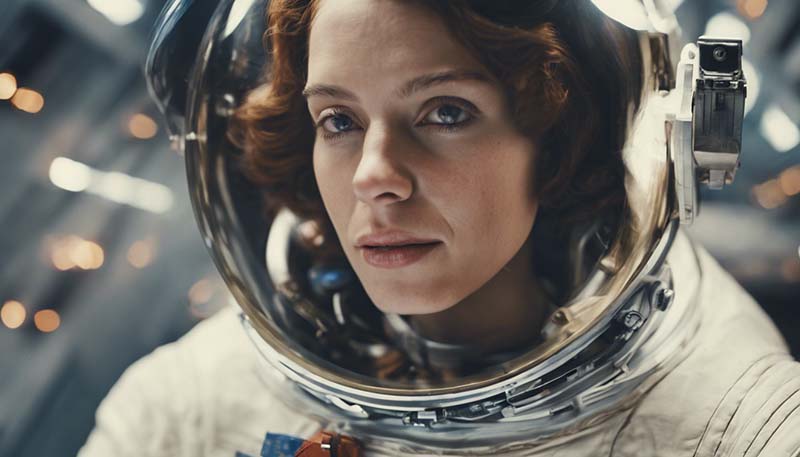The Role of Women in Space Exploration: A Historical Overview
Introduction
The history of space exploration is a fascinating and intricate tapestry of human achievement, ambition, and perseverance. While the focus often lies on the technological advancements and the astronauts who journey into the cosmos, it is essential to recognize the vital contributions of women in this field. This article aims to provide a historical overview of the role of women in space exploration, highlighting their achievements, challenges, and the progress made towards gender equality in this domain.
Early Days and Breaking Barriers
In the early days of space exploration, women faced numerous obstacles in their pursuit of careers in science, technology, engineering, and mathematics (STEM). Despite these challenges, several pioneering women made groundbreaking contributions to the field.
Jerrie Cobb
One of the first women to break barriers in space exploration was American aviator Jerrie Cobb. In the late 1950s and early 1960s, she was among the top candidates for the Mercury 13, a privately funded project that aimed to send women into space. Although the program was ultimately canceled, Cobb's exceptional skills as a pilot and her determination to prove that women were capable of spaceflight laid the groundwork for future generations of female astronauts.
Valentina Tereshkova
On June 16, 1963, Valentina Tereshkova became the first woman to travel to space, orbiting the Earth 48 times aboard the Vostok 6 spacecraft. Her achievement not only shattered the glass ceiling in space exploration but also demonstrated that women could endure the physical and mental demands of spaceflight.
Women in Space Programs and Missions
As the years went by, more women joined space programs worldwide, taking on various roles as astronauts, engineers, and support staff. Their contributions have been invaluable in advancing our understanding of space and our ability to explore it.
NASA's Female Astronauts
The first American woman to enter space was Sally Ride, who flew aboard the space shuttle Challenger in 1983. Since then, numerous other women have followed in her footsteps, including Kathy Sullivan, the first American woman to perform a spacewalk, and Peggy Whitson, who holds the record for the most cumulative time spent in space by a female astronaut.
International Female Astronauts
Women from other countries have also made significant strides in space exploration. In 1992, Roberta Bondar became Canada's first female astronaut, while in 2018, the United Arab Emirates announced their first astronaut program, which included Hazzaa Ali Almansoori, the first Emirati astronaut to visit the International Space Station (ISS).

Challenges and Progress Towards Gender Equality
Despite the progress made, women in space exploration still face numerous challenges, including gender bias, limited opportunities, and the need to balance professional and personal lives. However, recent years have seen a renewed focus on promoting gender equality in STEM fields and encouraging more women to pursue careers in space exploration.
Gender Bias and Stereotypes
Historically, women in space programs have faced discrimination and were often relegated to secondary roles. This has gradually changed, but gender stereotypes and unconscious bias still persist in the field. To address these issues, organizations like NASA have implemented diversity and inclusion initiatives, aiming to create a more inclusive environment for all.
Promoting Women in STEM
The push for gender equality in space exploration is closely tied to the broader movement of promoting women in STEM fields. Initiatives like the Women in Aerospace (WIA) organization and the Girls in Tech program work to inspire young girls and women to pursue careers in these areas, providing them with mentorship, networking opportunities, and resources.
Conclusion
The role of women in space exploration has evolved significantly over the years, from early pioneers like Jerrie Cobb and Valentina Tereshkova to the numerous female astronauts and engineers who contribute to space missions today. While challenges remain, the progress made towards gender equality in this domain is undeniable, and the future holds even more promise for women in space exploration.
Leave Your Comments